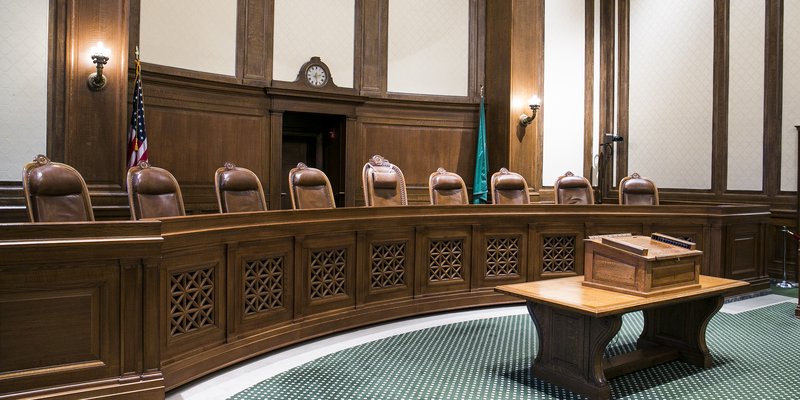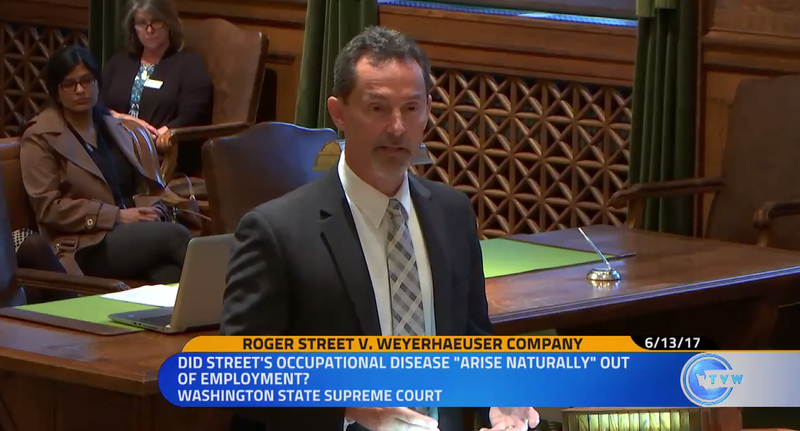Employer faces tough questioning at Supreme Court on occupational disease case
June 15, 2017

On Tuesday of this week, the Washington Supreme Court heard oral arguments in Street v. Weyerhaeuser, the self-insured employer's appeal from an adverse decision of the Court of Appeals last fall.
Street is an occupational disease claim where the central legal question is whether the law requires expert medical evidence for a claimant to prove that his or her occupational disease claim arose "naturally" from employment.
RCW 51.08.140 defines an occupational disease as arising "naturally and proximately out of employment."
It has been the law for some time that a claimant must show through medical testimony that employment was the proximate cause of the contended disease. The requirement that the disease must also arise "naturally out of employment" has further been understood to mean that the disease arises from distinctive conditions of employment, as opposed to causes outside employment, or causes typical to all employment.
It has not, however, been explicitly taken up by the high court until now whether medical testimony is necessary to prove the distinctive conditions part of the definition.
Weyerhaeuser says yes; Street, whose claim offered scant evidence of distinctive conditions, says no. The Department of Labor & Industries and Board of Industrial Insurance Appeals rejected Street's occupational disease claim for that reason. But they were reversed by a Cowlitz County jury, and that jury verdict was upheld on appeal.
WSIA led a coalition of seven statewide employer organizations on an amicus curiae ("friend of the court") brief to the court supporting Weyerhaeuser's position, while the claimant was supported by the state trial lawyers' association.
In Tuesday's oral argument, attorney Craig Staples, for Weyerhaeuser, faced tough questioning from the nine member panel. Washington's Supreme Court is notoriously pro-claimant in most workers' compensation cases, and several justices through questioning expressed skepticism that medical testimony should be necessary to establish a link between work conditions and what is ultimately a medical condition.
Staples countered by pointing out that whether a condition of employment is distinctive with respect to the contended disease is itself an element of medical causation, which requires medical testimony.
You can watch the entire oral argument (approx. 42 minutes) by clicking here or below:
An opinion in the case is expected by the end of the year.
